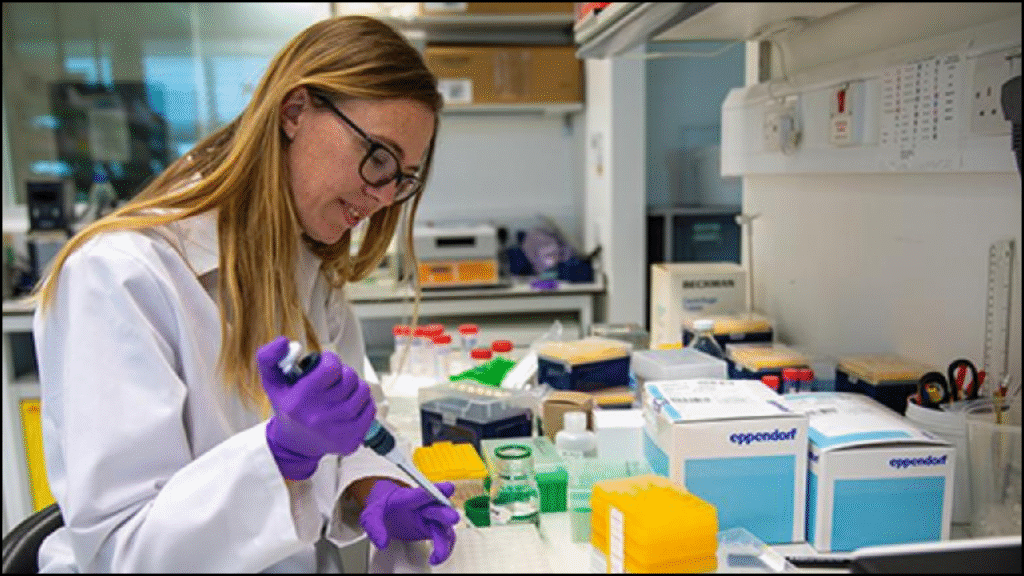
Interdisciplinary research at Cambridge University represents a cornerstone of its academic philosophy. By integrating knowledge from multiple disciplines, Cambridge fosters innovation, problem-solving, and the development of new methodologies. This approach enables researchers to tackle complex global challenges, combining expertise from science, technology, the humanities, and social sciences. Interdisciplinary research at Cambridge equips students and scholars with skills relevant to an increasingly interconnected world.
Table of Contents
Foundations of Interdisciplinary Research at Cambridge
Cambridge has a long history of encouraging collaboration across disciplines to advance knowledge.
| Aspect | Description |
|---|---|
| Historical Roots | Integration of mathematics, physics, and natural sciences since the 17th century. |
| Institutional Support | Establishment of interdisciplinary centers and research initiatives across colleges. |
| Teaching Integration | Inclusion of interdisciplinary elements in undergraduate and postgraduate programs. |
| Global Collaboration | Partnerships with international universities and research organizations promote cross-disciplinary innovation. |
Key Interdisciplinary Research Areas
Cambridge provides opportunities to engage in research that spans multiple fields, fostering holistic understanding and innovation.
- Biomedical Sciences and Engineering
- Collaboration between medical researchers, engineers, and computational scientists.
- Focus areas include biomedical imaging, prosthetics, and regenerative medicine.
- Supports translation of research into real-world healthcare solutions.
- Artificial Intelligence and Cognitive Science
- Combines computer science, psychology, neuroscience, and linguistics.
- Research includes machine learning, neural networks, and human-computer interaction.
- Promotes the development of AI applications with ethical and cognitive insights.
- Environmental Science and Policy
- Integration of biology, chemistry, engineering, and public policy.
- Research targets climate change, sustainable energy, and biodiversity conservation.
- Influences national and international environmental strategies.
- Digital Humanities
- Merges humanities, data analytics, and computational tools.
- Projects include digital archives, text mining, and historical simulations.
- Enhances accessibility and interpretation of cultural and historical knowledge.
- Global Health and Epidemiology
- Collaboration between medicine, social sciences, and statistics.
- Focus on disease modeling, public health interventions, and policy design.
- Contributes to pandemic preparedness and healthcare planning.
Interdisciplinary Research Centers
Cambridge hosts specialized centers that facilitate cross-disciplinary collaboration.
| Center | Focus Area |
|---|---|
| Cavendish Laboratory | Physics and engineering integration for technological innovations. |
| Wellcome-MRC Cambridge Stem Cell Institute | Combines biology, genetics, and medicine for regenerative therapies. |
| Cambridge Centre for Data-Driven Discovery (C2D3) | Applies computational science to multiple disciplines, including health, environment, and social sciences. |
| Centre for Research in Arts, Social Sciences, and Humanities (CRASSH) | Encourages interdisciplinary work in humanities, policy, and technology. |
| Cambridge Institute for Sustainability Leadership (CISL) | Integrates environmental science, economics, and management to address global sustainability challenges. |
Benefits for Students and Researchers
Engaging in interdisciplinary research at Cambridge provides several academic and professional advantages.
- Enhanced Problem-Solving Skills
- Exposure to multiple methodologies enables creative solutions.
- Encourages flexibility in thinking and adaptability across fields.
- Collaborative Learning Environment
- Work with experts from diverse backgrounds.
- Develop teamwork and communication skills critical for global research.
- Access to Advanced Facilities
- Laboratories, libraries, computing centers, and simulation tools support interdisciplinary projects.
- Professional and Academic Networking
- Collaborations extend to industry, government, and international institutions.
- Opportunities to contribute to high-impact publications and conferences.
Integration with Undergraduate and Postgraduate Programs
Cambridge incorporates interdisciplinary research opportunities into its degree programs.
| Program Type | Integration Approach |
|---|---|
| Undergraduate | Elective modules, research projects, and supervisions allow exploration across disciplines. |
| Masters | Interdisciplinary pathways combining courses from multiple departments. |
| PhD | Joint supervision across departments; access to interdisciplinary centers. |
| Professional Development | Workshops, internships, and research placements emphasize applied interdisciplinary experience. |
Global Impact of Interdisciplinary Research
Cambridge’s interdisciplinary research has contributed to major global advancements.
- Healthcare Innovations
- Development of medical devices, vaccines, and treatment protocols integrating engineering, biology, and public health.
- Artificial Intelligence Applications
- AI tools are designed for ethical decision-making, robotics, and cognitive modeling.
- Environmental Solutions
- Strategies for sustainable energy, carbon reduction, and biodiversity preservation are implemented worldwide.
- Policy and Governance
- Interdisciplinary research informs government policy in healthcare, technology, and climate adaptation.
Future Directions in Interdisciplinary Research at Cambridge
Cambridge continues to expand interdisciplinary opportunities to meet emerging global challenges.
- Sustainability and Climate Change
- Development of new methodologies to address environmental crises through engineering, science, and policy.
- Digital Transformation
- Integration of AI, big data, and computational modeling into education, research, and public services.
- Global Health Challenges
- Collaborative approaches to pandemics, nutrition, and mental health solutions.
- Ethics and Technology
- Combining philosophy, law, and technology to address the ethical implications of AI, biotechnology, and genetic engineering.
In Summary
Interdisciplinary research at Cambridge University fosters innovation, collaboration, and problem-solving. By integrating multiple disciplines, Cambridge equips researchers and students with the skills needed to tackle complex global challenges. Its research centers, collaborative programs, and international partnerships ensure that discoveries are impactful across science, humanities, policy, and technology. Cambridge’s commitment to interdisciplinary research continues to shape education, industry, and global progress for the future.





